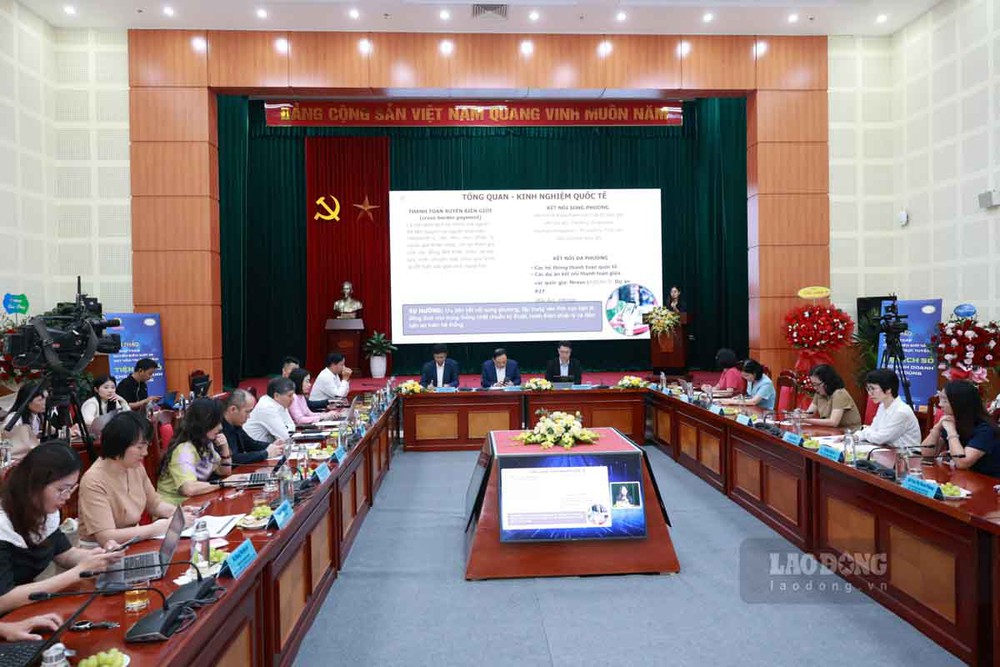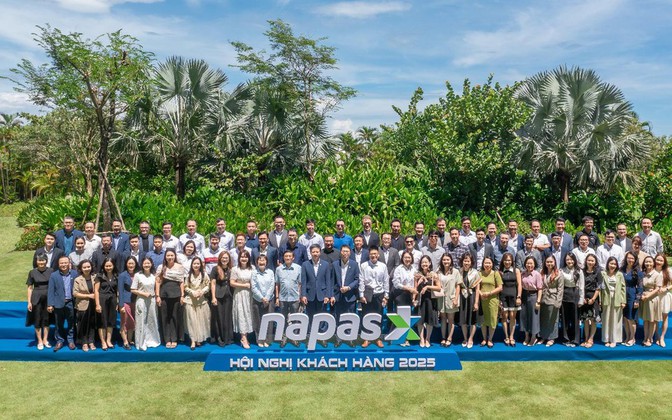The seminar was attended by Mr. Pham Anh Tuan, Director General of the Payment Department, State Bank of Vietnam; Ms. Pham Thi Hoang Anh, Deputy in charge of the Board of Directors, Banking Academy; Mr. Nguyen Quang Hung, Chairman of the Board of Directors of NAPAS; Mr. Nguyen Quang Minh, Chief Executive Officer of NAPAS; together with representatives of commercial banks, fintech companies, economic experts, and members of the press and media agencies.

The seminar aimed to clarify the role of cross-border payments and online lending in promoting trade, consumption, and digital economic development, while addressing key challenges: completing the legal framework for "digital signatures" and "electronic identification," improving digitization processes in lending operations, expanding the international payment ecosystem, and ensuring data security and privacy. These issues are particularly urgent in the context of globalization and the rapid growth of e-commerce, where safe, fast, cost-effective cross-border payments and transparent, convenient access to online credit have become increasingly essential.

Mr. Pham Anh Tuan – Director of the Payment Department, State Bank of Vietnam. Photo: Hai Nguyen
Sharing insights on payment trends, Mr. Nguyen Hoang Long – Deputy General Director of NAPAS – noted: "We used to think that international payment cards were a universal tool that could be used anywhere in the world. However, the reality today shows that in many markets, such as China and potentially soon in Southeast Asia, international cards no longer serve as a ‘universal key.’"
In Vietnam, the payment landscape has also evolved rapidly. From 2000 to 2015, service providers mainly focused on developing card payment systems connected to international card organizations and bilateral arrangements with domestic institutions. However, since 2020, the trend has strongly shifted toward account-based payments via QR codes. Whereas previously international visitors to Vietnam mostly used cards at 5-star hotels or major shopping centers, today, they can even pay for street-side baguettes or sidewalk coffee using cashless QR code payments. This trend is not only observed in Vietnam or China but is increasingly spreading across many Asian countries.

What is the direction for cross-border payment connectivity?
NAPAS has implemented cross-border payment connectivity through two primary channels: card payments via international card organizations and bank account payments using QR codes. Accordingly, users are expected to increasingly use mobile banking apps from domestic banks to scan QR codes when traveling abroad; in the future, this may also include NFC payments, biometric payments, and more.
In the broader context, Vietnam’s cross-border payment connectivity will initially focus on ASEAN countries, then China, and subsequently expand to other Asian nations. By the end of this year, NAPAS is expected to complete technical integration with China to launch payment services for Chinese tourists in Vietnam. By 2026, NAPAS plans to enable Vietnamese users traveling to China to make direct QR code payments. Currently, with UPI, both parties have finalized all contract terms and completed technical testing, with a pilot expected in October 2025; for Tenpay and Alipay, technical integration has largely been completed, with testing and deployment anticipated within 2025.
Mr. Long also added that in late August, during a meeting between NAPAS and leaders of payment companies from Thailand, Singapore, the Philippines, Indonesia, and Malaysia, the parties agreed that despite each country having its own standards, promoting bilateral connectivity remains a top priority. Stakeholders will collaborate to establish common standards and address interoperability challenges, such as discrepancies in operations or technical requirements. Notably, the Director of PAYNET (Malaysia) emphasized: "Currently, technology, technical capabilities, and payment operations in Asian countries are confidently ahead of the world. This is an opportunity for companies to come together and jointly develop new payment products and services for consumers."
Under the guidance of the State Bank of Vietnam, in its role as the national payment authority and as the "gateway" for connecting with international payment organizations to build cross-border payment channels, NAPAS continuously strives to enhance connectivity to provide comprehensive payment services to users through partnerships with domestic banks and payment intermediaries. Citizens can use mobile banking apps from Vietnamese banks to make payments in countries with bilateral connectivity.
Conversely, not only large enterprises and stores but even small shops serving Vietnamese customers can efficiently and safely serve international tourists visiting Vietnam through cross-border QR code payments. This contributes to the autonomy and independence of the national payment network, reducing reliance on international payment providers, strengthening regional cooperation, elevating the status of the local currency, and enhancing Vietnam’s payment system on the global financial map.
In his concluding remarks and recommendations, Mr. Pham Anh Tuan, Director of the Payment Department, SBV, stated that promoting cross-border payment connectivity requires the synchronization of modern technical infrastructure, a comprehensive legal framework, security and privacy safeguards, inter-agency coordination, and extensive international cooperation. As the state management agency in the field of currency and banking operations, the SBV will continue to implement coordinated policies and solutions to foster cross-border payment connectivity regionally and globally, meeting the demand for fast, secure, and convenient payments for citizens and businesses.
Regarding online lending, the State Bank is reviewing a draft amendment to Circular 39, which proposes adjustments to regulations on lending via electronic means to further facilitate credit institutions in providing safe and effective electronic loans, while enabling easier access to bank credit.










